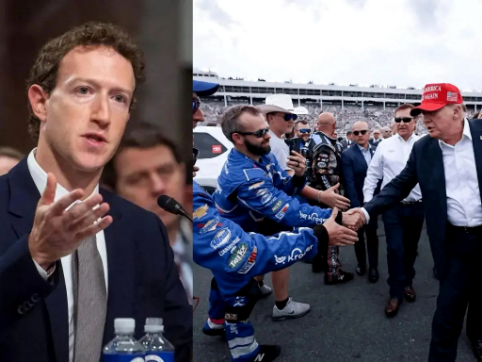- Meta announced Friday it will remove penalties and restrictions on former President Donald Trump’s social media accounts immediately.
- The decision comes as the 2024 U.S. presidential election approaches, easing prior limits imposed after the January 6 insurrection.
OUR TAKE
Meta’s decision to lift restrictions on Trump’s social media accounts ahead of the election underscores its evolving stance on political expression and platform governance. This step could impact how political messaging is disseminated online, reflecting broader debates about digital responsibility and democratic discourse.
—Doris Du, BTW reporter
Meta has decided to lift all penalties and restrictions previously placed on former President Donald Trump’s Facebook and Instagram accounts, a move coinciding with the upcoming 2024 U.S. presidential election.
What happened
In response to the January 6 insurrection in Washington, D.C., Meta originally suspended Trump’s social media accounts for two years, reinstating access in early 2023 but maintaining certain restrictions. Now, with the election cycle intensifying, Meta’s latest action means any potential violations of community guidelines by Trump could lead to shorter suspensions, contrasting with the longer penalties previously in place.
Also read: Trump to speak at Bitcoin 2024 in Nashville on July 27
Also read: Donald Trump joins TikTok, immediately wins millions of followers
Why it’s important
Meta’s decision holds significance amidst the political climate leading up to the presidential conventions, starting with the Republican convention next week. By equalising the social media access of presumptive GOP nominee Trump and President Biden, Meta aims to facilitate a balanced platform for political expression ahead of the elections.
Personal perspective
Access to social media plays a pivotal role in political discourse and voter engagement. Meta’s move to restore Trump’s account freedoms highlights the complexities of balancing free speech with platform responsibility, influencing how political narratives unfold online. As the election nears, this decision could reshape digital campaigning dynamics and voter interactions online.

